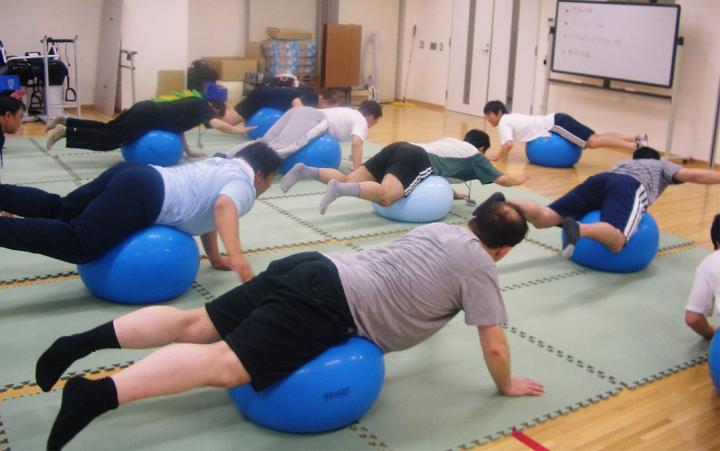Researchers at the University of Tsukuba show that in non-alcoholic fatty liver disease, regimented exercise has beneficial effects on the liver that are unrelated to weight loss, and they reveal the mechanisms underlying these benefits

Credit: University of Tsukuba
Tsukuba, Japan – Non-alcoholic fatty liver disease (NAFLD) is the most common liver disorder worldwide, affecting as much as a quarter of humanity. It is characterized by fat accumulation in liver cells and may progress to inflammation, cirrhosis and liver failure. Now, researchers at the University of Tsukuba reveal the positive effects, beyond the expected weight-loss benefit, of exercise on the liver.
NAFLD is associated with unhealthy behaviors such as overeating and a sedentary lifestyle. In Japan 41% of middle-aged men have NAFLD and 25% will progress to non-alcoholic steatohepatitis (NASH) and hepatic dysfunction.
Weight reduction is fundamental to NAFLD management. Unfortunately, achieving a targeted bodyweight without supervision is difficult, and maintaining this over time even more so. Hitherto, exercise was considered adjunctive to dietary restrictions for weight loss but the other benefits such as reduced hepatic steatosis (fatty change) and stiffness are being increasingly recognized. However, the underlying mechanisms remain unclear.
“We compared data from obese Japanese men with NAFLD on a 3-month exercise regimen with those on dietary restriction targeting weight loss,” senior author Professor Junichi Shoda explains. “We tracked hepatic parameters, reduction in adipose tissue, increase in muscle strength, reductions in inflammation and oxidative stress, changes in organokine concentrations, and expression of target genes of Nrf2, an oxidative stress sensor.”
The researchers found that exercise preserved muscle mass better, though with modest decrease of body and fat mass. Remarkably, ultrasound elastography revealed that the exercise regimen reduced liver steatosis by an additional 9.5%, liver stiffness by an additional 6.8%, and the FibroScan-AST Score (a measure of liver fibrosis) by an additional 16.4% over the weight-loss regimen.
Additionally, the exercise regimen altered the circulating concentrations of specific organokines and apparently induced anti-inflammatory and anti-oxidative stress responses through activation of the Nrf2 (nuclear factor E2-related factor 2), an oxidative stress sensor. It also enhanced the phagocytic capacity of Kupffer cells which help maintain liver function.
Professor Shoda explains the relevance of their findings. “Our research shows how exercise prevents liver steatosis and fibrosis in NAFLD and clarifies that this benefit is compounded by preservation of muscle mass and is independent of weight changes. Patients on exercise regimens may become demotivated and drop out if they do not experience significant weight loss. Therefore, moderate to vigorous intensity exercise should be integrated in all NAFLD therapeutic regimens, and patients at risk for NASH should be encouraged to persevere with moderate to high intensity exercise regardless of whether or not they lose weight.”
###
The article, “Weight loss-independent benefits of exercise on liver steatosis and stiffness in
Japanese men with NAFLD” was published in JHEP Reports (2021) at DOI: https:/
Media Contact
Naoko Yamashina
[email protected]
Related Journal Article
http://dx.



